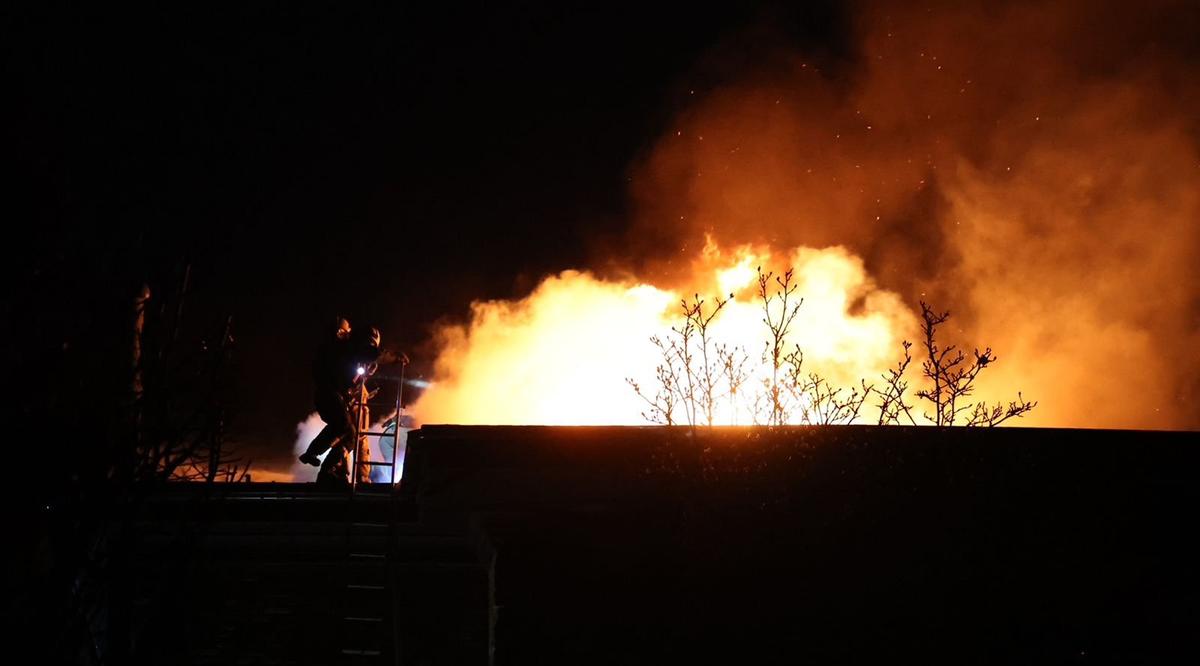Russia reportedly launched an intercontinental ballistic missile (ICBM) on Ukraine’s central-eastern city of Dnipro Thursday morning, according to the Ukrainian Air Force.
If confirmed, it would be the first time the Kremlin has used such a powerful, nuclear-capable weapon to attack Ukraine.
The missile, which was reportedly fired from Russia’s southern Astrakhan region, targeted enterprises and critical infrastructure, the Ukrainian Air Force said, adding that Russia also fired a Kinzhal hypersonic missile and seven Kh-101 cruise missiles, six of which were shot down by Ukrainian air defences.
While Russia has regularly used short-range ballistic missiles in its aerial attacks on Ukraine since the start of the war, ICBMs are much larger weapons capable of delivering nuclear warheads and hitting targets at far longer ranges.
Ukrainian President Volodymyr Zelensky said in a video address that “all parameters” of the missile launched on Thursday “match those of an intercontinental ballistic missile”, adding that Vladimir Putin was “using Ukraine as a testing ground”.
“Today, our insane neighbour has once again shown what they truly are, and how they despise dignity, freedom, and human life itself,” Zelensky said.
The report did not specify what type of ICBM was launched, and there was no suggestion that it was nuclear-armed. Sources told Ukrainian independent news outlet Ukrainska Pravda that the missile in question was an RS-26 Rubezh, an intermediate-range ballistic missile with a range of up to 6,000 km.
The RS-26 sits in a grey area in between an intermediate-range missile and an ICBM, the FT pointed out on Thursday.
Pavel Podvig, a senior researcher at the United Nations Institute for Disarmament Research, wrote on X that the RS-26 “is in effect an intermediate-range missile”. Using strategic missiles in a conventional role “does not make a lot of sense because of their relatively low accuracy and high cost”, Podvig wrote, adding that Russia might have launched the strike to send a signal.
“I would urge people to keep calm, not assume automatically that ‘intercontinental’ is something inherently and immediately dangerous. But it should be taken seriously.”
“I would urge people to keep calm, not assume automatically that ‘intercontinental’ is something inherently and immediately dangerous. But it should be taken seriously,” Podvig stressed.
Dnipropetrovsk region Governor Serhiy Lysak reported that the attack damaged an industrial enterprise and set off two fires in the city, while Dnipro Mayor Boris Filatov said that the shelling had damaged a local rehabilitation centre for people with disabilities.
Kremlin spokesperson Dmitry Peskov refused to comment on reports of Russia firing an ICBM during a press briefing on Thursday.
Due to the missile attack, the Ukrainian energy company DTEK announced emergency power outages in the capital Kyiv, as well as the central Dnipropetrovsk and eastern Donetsk regions.
Russia’s attack comes a day after Ukraine fired British Storm Shadow long-range missiles in Russia’s Kursk border region for the first time, according to Bloomberg.
On Tuesday, Vladimir Putin revised Russia’s nuclear doctrine, stating that any attack by a non-nuclear state backed by a nuclear power would be regarded as a joint assault on Russia, potentially triggering a nuclear response from Moscow.

